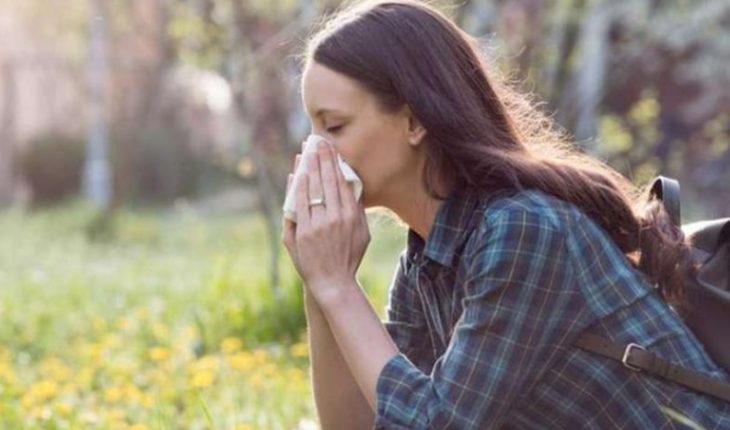For a couple of weeks now it has been a regular topic of conversation among many Chileans who, with nasal congestion and itchy eyes, comment that this spring the atmosphere is recharged with particles. And apparently they’re right, as outlined by the director of the Bee Ecology Laboratory of the Catholic University of Maule (UCM), Victor Hugo Monzón.
“There is an increase from previous years and this could be because this year, with the increase in the amount of water falling in the winter months and the increase in temperatures these days, have caused the blooms to increase and therefore pollen production, generating the perception of a greater amount,” explained Dr. , who is also dean of the Faculty of Basic Sciences of that institution.
The specialist recalls that the years of drought also resulted in lower blooms and, therefore, circulating pollen. This has also been favored by the heat that has generally been felt over the past few weeks.
“High temperatures have helped accelerate flowering and therefore pollen production,” adds the specialist.
What happens
Monsoon explains that allergy from this cause is known as polynic asthma, and is expressed in symptoms such as conjunctivitis; itching in the nose, throat and palate; nasal congestion and sneezing; and in the most complex cases in shortness of breath, coughing and beeping.
“Basically it’s a single allergic symptom of upper airway inflammation,” says UCM’s respiratory disease doctor and dean, Raúl Silva.
“Inflammation of the lower airway such as trachea, bronchi and finer bronchi now causes airway obstruction that manifests itself by wheezing or chest hissing, a decrease in physical capacity, breathing capacity, coughing and expectoration,” he says.
The doctor advises patients to always be monitored with a specialist, which should be increased if the disease is reaggresed in the spring.
“Asthma, like hypertension or diabetes, are chronic diseases that don’t improve over time, as much of the cause of these diseases are genetic and genes can’t be changed,” he recalls.
“There are times when symptoms can be eliminated by inhaling some type of inhalation medicine such as salbutamol, but at other times it is necessary to incorporate other medicines that are also given by inhalation, such as inhaled corticosteroids. These have the effect of deflating the nose and airway, which is the main condition that obstructs these patients, however, it should always be used under the supervision of specialists,” he says.
For his part, pollen specialist Victor Hugo Monsoon recommends ingesting some antihistamine, “and waiting, because pollen is seasonal, so from here to a few weeks the amount in the air will begin to decrease”.
translated from Spanish: Expert confirms suspicions: this spring there is more pollen
September 29, 2020 |





